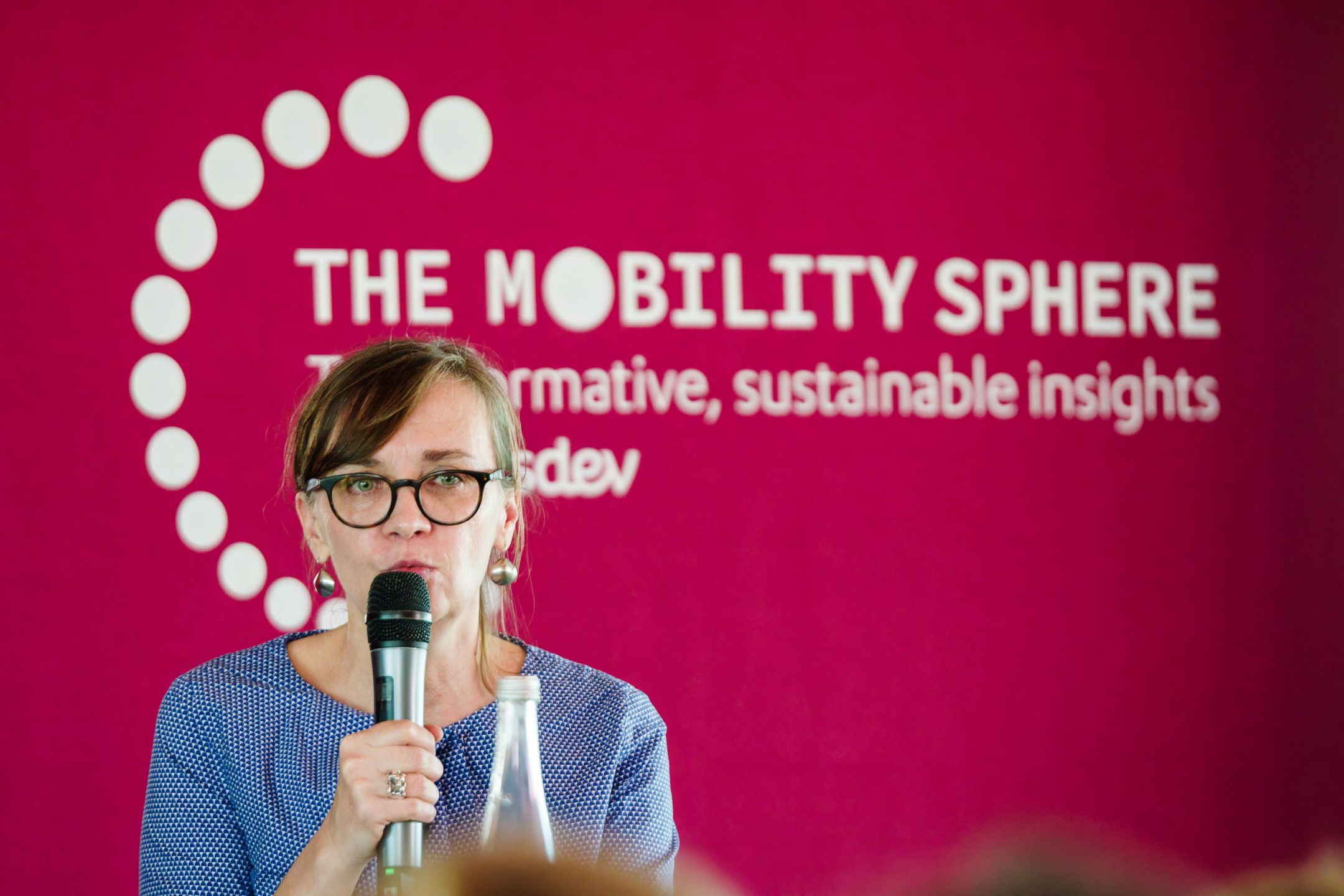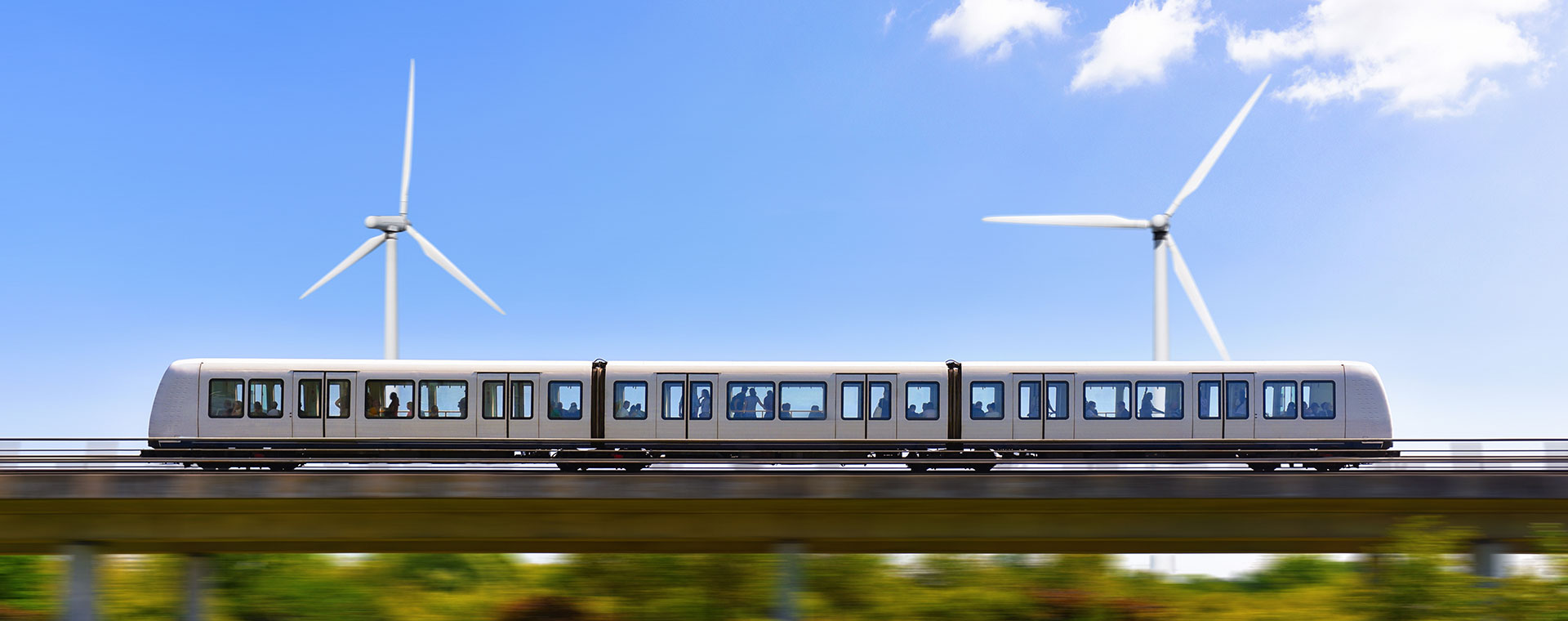Interview
Decarbonization
Combining ambitious climate goals with pragmatic policies
-
Carole Labbé
Economic Advisor

Carole Labbé, Economic Counsellor at the Representation of the European Commission in Paris, talks to The Mobility Times about how the decarbonization of transportation is at the heart of the EU’s climate agenda.
The Mobility Times: From the Green Deal to the Clean Industrial Deal, what is the key to EU competitive success?
Carole Labbé: The EU’s Clean Industrial Deal builds on the Green Deal’s climate ambitions, aiming for carbon neutrality by 2050; not only to ensure sustainability but also to enhance industrial competitiveness. The key to success lies in a holistic strategy that integrates innovation, market creation, financing, circularity, international cooperation, and skills development.
Affordable and clean energy is crucial to reducing costs and accelerating electrification, supported by measures to expand renewable capacity and deepen energy market integration. A core component of this strategy is the creation of lead markets for sustainable products. This involves leveraging public procurement and regulatory incentives to stimulate demand for green technologies and products. By prioritizing clean solutions in public purchasing and introducing carbon intensity labels, the EU encourages businesses to innovate and scale up production, while providing consumers with clear information to make greener choices.
The Clean Industrial Deal aims at leveraging more than EUR 100 billion in public and private investments, by increasing the firepower of the Innovation Fund, amending InvestEU and simplifying State aid rules. This effort will be further reinforced by the upcoming Multiannual Financial Framework (MFF), which includes the new Competitiveness Fund—amounting to around EUR 450 billion as proposed in July. Unlike previous budgets, the Competitiveness Fund will be able to provide production aid to scale up manufacturing of clean products. It will also introduce “Made in EU” requirements, granting companies that use local technologies and suppliers privileged access to EU funds. This approach not only accelerates the green transition but also strengthens Europe’s industrial sovereignty and competitiveness on the global stage.
Circular economy initiatives aim to reduce dependency on critical raw materials, while global trade partnerships facilitate access to new markets and technologies, strengthening Europe’s position in the global clean-tech economy.
Finally, reskilling and upskilling the workforce ensures industries have the skilled human capital necessary for a sustainable and competitive future.
In essence, the EU’s competitive advantage arises from combining ambitious climate goals with pragmatic policies that drive innovation, investment, and skills development. This approach is supported by robust funding tools such as the Competitiveness Fund and by achieving the Capital Markets Union to better mobilize the substantial savings available across the EU.
The Mobility Times: Which EU funding tools are most effective for green transportation?
Carole Labbé: Decarbonising transport is central to the EU’s climate agenda and supported by a comprehensive set of funding tools. The Connecting Europe Facility (CEF) plays a major role by investing in cross-border transport infrastructure such as railways, clean urban transport, and alternative fuel infrastructure like electric charging stations and hydrogen refueling points. The next MFF plans to double CEF’s budget for transport to EUR 51.5 billion, further accelerating network modernization and integration across Europe.
At regional and local levels, the European Structural and Investment Funds, including the European Regional Development Fund (ERDF) and the Cohesion Fund, support tailored sustainable mobility projects. These range from upgrading urban public transport to expanding cycling infrastructure and creating low-emission zones that improve air quality and reduce emissions.
Innovation is supported by programmes such as the Innovation Fund and Horizon Europe, that finance breakthrough technologies such as electrification, hydrogen, and smart mobility systems.
The upcoming European Competitiveness Fund (ECF) will strengthen these efforts by contributing to the financing of sustainable fuels, charging infrastructure, the greening of ports, high-speed rail, and clean mobile assets—including vehicles, vessels, aircraft, and rolling stock—as well as the modernization and digitalization of transport systems to promote clean, multimodal, and safe mobility.
However, EU funding alone cannot cover all investment needs. European financial instruments act as catalysts, leveraging additional public and private investments essential to scaling sustainable mobility. For instance, the InvestEU programme mobilises private investment through EU guarantees and financing mechanisms, enabling large-scale green transport projects to attract critical capital. Finally, the European Investment Bank—often called the EU’s climate bank—plays a key role in financing clean mobility projects. Together, these public and private resources contribute to our climate and transport agenda.
The Mobility Times: Could public-private partnerships be what Europe needs to meet its climate goals?
Carole Labbé: Public-private partnerships (PPPs) are increasingly recognized as an essential mechanism to advance Europe’s climate objectives. Meeting the scale of investment required for climate projects, such as renewable energy infrastructure, green transport, and energy-efficient buildings, requires financial resources beyond what public budgets alone can provide. PPPs effectively blend public funding with private capital, unlocking larger pools of investment.
Moreover, these partnerships facilitate risk-sharing and combine the strengths of both sectors. Private companies bring innovation, operational efficiency, and agility, while public authorities provide long-term policy guidance and regulatory frameworks.
PPPs also ensure long-term commitment, as contracts often span decades, aligning incentives for quality maintenance and sustained environmental impact. The private sector’s drive to optimize costs and improve services introduces market discipline, leading to more effective use of resources.
The European Investment Bank (EIB) is an important source of support, as it not only finances PPP projects but also provides technical expertise to help local authorities develop and structure complex PPP arrangements. For example, the EIB is advising the Czech Republic on its high-speed rail (HSR) projects, helping ensure that these large-scale transport infrastructures are designed in line with best practices, climate standards, and financial viability.
Nevertheless, successful PPPs require careful design. Clear environmental standards and measurable outcomes are essential, while transparent risk-sharing and stable regulatory frameworks are needed to attract and maintain private investment without overburdening public finances.
-
 Interview
Pollution
Interview
Pollution
Can mobility be pollution-free?
Weyland Aymeric, Consultant Urban Mobility
-
 Interview
Desirability
Interview
Desirability
How to make local transport more attractive?
Susanne Eliasson, Co-founder & Architect GRAU (Good reasons to afford urbanism)
-
 Interview
Competitive tendering
Interview
Competitive tendering
Why and how does competitive tendering drive improvements in mobility?
Probst Laurent, Managing Director of île-de-France Mobilités
-
 Interview
Climate
Interview
Climate
Does climate action mean less mobility?
Mallet Thierry, Chairman and Group Chief, Executive Officer of Transdev
-
 Edito
Landscapes
Edito
Landscapes
What landscapes will we be able to contemplate from the windows of our public transit vehicles?
Jean Pierre Thibault, Director of the French section of the International Council on Monuments and Sites
When designing transportation structures, we must not neglect their visual impact.

